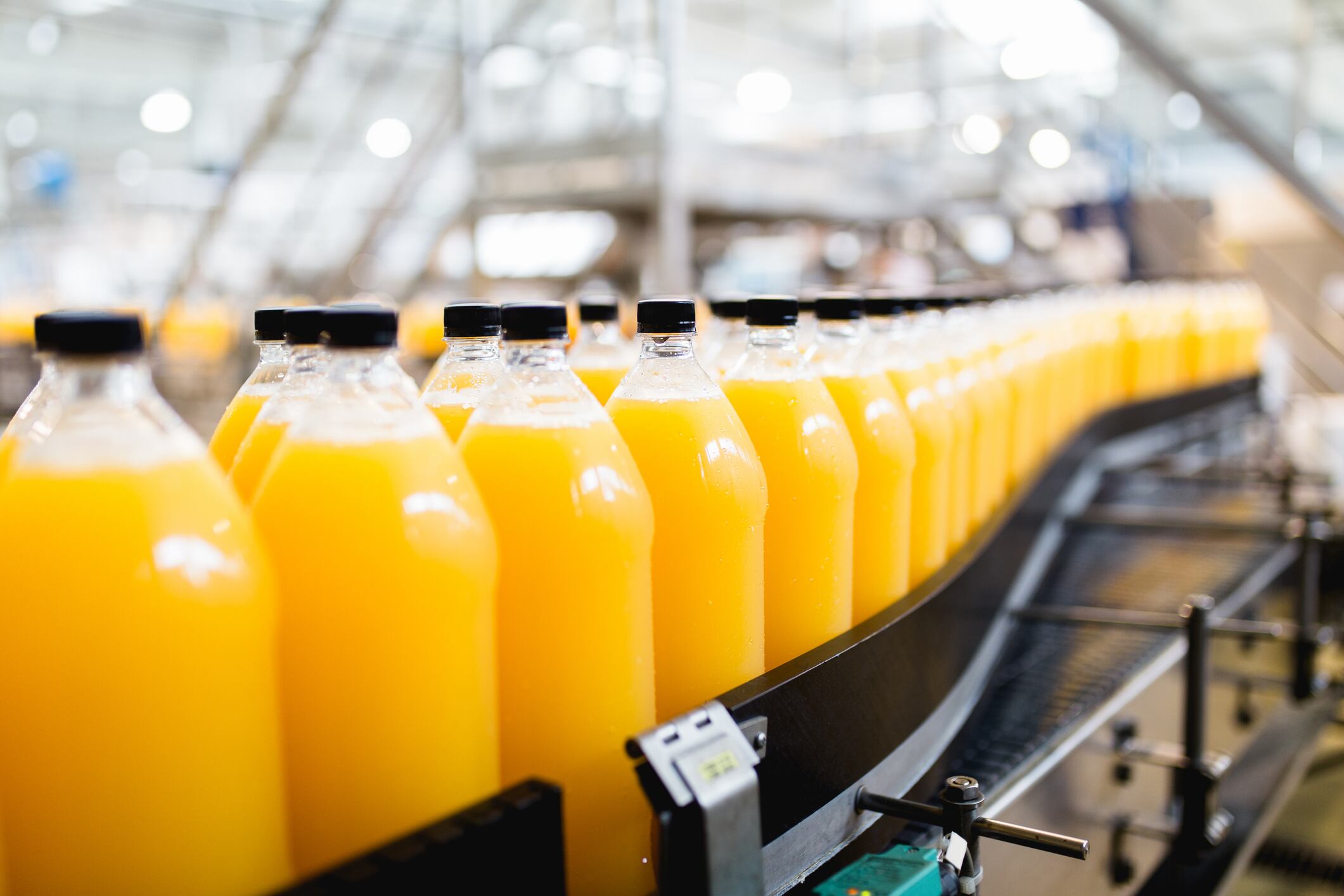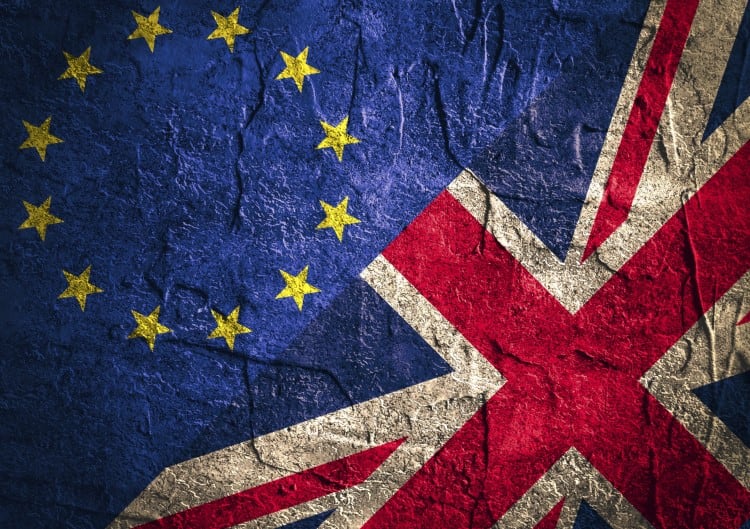News came last week that the UK would not be exempt from the first round of tariffs, despite initial hopes.
Currently, the tax on the UK would only impact metal products.
Steel and aluminium have been on President Donald Trump’s agenda for a while, having imposed levies on these metals during his first presidency.
However, this time around such a tax may not only affect raw steel and aluminium exports to the US, but also items containing these metals, such as furniture and machinery.
In 2024, Global Trade Alert estimated UK exports of these products to the US were worth around £2.2 billion.
Trump has also threatened to mirror taxes imposed on the US across all its trading partners next month in an effort to ‘level the playing field’. In deciding the level of tax, the White House said it will consider tariffs imposed on US products, VAT and policies around exchange rates. The UK has a standard 20% VAT rate, which means we may see this reciprocated.
UK Prime Minister Sir Keir Starmer has said the UK is taking a “pragmatic approach” and is hoping to secure a trade deal with the US. Whilst he has said the UK will “keep all options on the table” he is yet to confirm whether the UK will retaliate with its own tariffs as we have seen from others, including Canada and the EU.
Uncertainty rocking stable markets
Karsten Smet, CEO of ingredients, products and raw material supplier ACI Group, said that the uncertainty of trade has caused volatility in normally stable markets.
“It’s hard to overstate how out-of-the-ordinary this situation is for businesses, but it’s likely just the beginning,” she said.
“The volatility of normally stable market indicators like corn futures highlight the fragile state of business and investor confidence right now. But the worst thing is the uncertainty. To be frank, the things Trump says bear little relation to the things he does, so the tariffs could roll back on certain products next week, or they could increase over the next four years.
“Whether these tariffs are rolled back or expanded, that uncertainty will never really go away, and this is what will continue to do damage. Businesses must adapt – and quickly. I’m sure many will have a few choice words for the President at the moment, but the most important one is ‘contingency’. At ACI, we know just having a Plan B isn’t enough – Plans C through to Z will be needed to keep value chains running smoothly.”
An opportunity for UK alcohol producers?
Melissa Thomas, head of Canada desk at audit, tax and business advisory firm, Blick Rothenberg, has said that the liquor trade war between the US and Canada could open up new opportunities for the UK.
Canada has said it will impose taxes on C$30 billion worth of US goods after the States announced it would be slapping tariffs on its neighbour.
“The Ontario Governor has confirmed that The Liquor Control Board of Ontario (LCBO), which sells almost $1billion worth of US alcohol every year, is removing all US products in retaliation against Donald Trump’s 25% tariffs on Canadian goods. UK alcohol producers could seize on the opportunity to fill the gap in the LCBO’s shelves with their own products,” she said.
“The LCBO is an exclusive wholesaler, so independent retailers, bars and restaurants across Ontario will be unable to purchase American alcohol to restock their cellars. With Canadian producers potentially struggling to fill the gap as US tariffs on steel and aluminium start to bite, UK producers could step in to keep the taps flowing.”
“British producers could also take advantage of the growing anti-US sentiment in Canada, as there may well be an appetite for a Scottish whiskey, a South Downs bubbly or Kentish Bitter.
“On the US side, Californian wineries, Kentucky whiskey and Tennessee Bourbon distilleries will be looking for new sales channels outside of the US. The removal of US alcohol by LCBO equates to more than 3,600 American-made alcohol products from 35 US states, creating an export gap US producers will urgently need to fill.”
Whilst Sandra Sullivan, director of the UK Food and Drink Exporters Association (FDEA) agreed this may open the door for British products, the association is watchful of “potential disruptions to global supply chains and increased competition in other markets.”
Trump hits EU with 200% alcohol tariff threat
Soon after tensions rose between Canada and the US, Trump hit the EU with the possibility of a 200% tariff on alcohol. This follows the EU’s threat of a 50% tariff on whisky which it announced in response to the US metal taxes.
“If this Tariff is not removed immediately, the U.S. will shortly place a 200% Tariff on all WINES, CHAMPAGNES, & ALCOHOLIC PRODUCTS COMING OUT OF FRANCE AND OTHER E.U. REPRESENTED COUNTRIES,” Trump posted on Truth Social yesterday (13 March 2025).
Meanwhile on X, France’s minister delegate for foreign trade and French nationals abroad said that France would not back down.
“D. Trump is escalating the trade war he chose to unleash. France remains determined to respond with the European Commission and our partners. We will not give in to threats and will always protect our sectors,” Laurent Saint-Martin’s post read.
According to figures from World Bank Data, the US imports around $4.9 billion worth of wine annually, so if this threat is followed through it could have devastating consequences.
Comité Européen des Entreprises Vins (CCEV), which represents the EU wine industry, has expressed deep concerns.
In a statement it said it is “dismayed” to see wine “held hostage’ in “an unrelated trade dispute” and warned that this back-and-forth battle between the EU and US will result in layoffs, deferred investments and price increases across entire supply chain.
“Ultimately, it is businesses and consumers in both the EU and the US who will bear the costs,” the CEEV contended.
Since Trump’s 200% threat, shares of large European winemakers have fallen.
“We urge the European Commission and member States to protect the economic vitality and diversity of the wine sector by removing wine from the final list of retaliation. Wine should not be used as leverage in unrelated trade disputes,” the CEEV statement continued.
This isn’t the first time alcohol has been pulled into crossfire of metal taxes. In 2018, a temporary 25% tax was placed on American whisky after the US imposed tariffs on European metals.
SpiritsEurope, which represents the European spirits sector, said it is deeply alarmed by the renewed threat of tariffs on EU and US spirits.
Data from the Distilled Spirits Council of the United States shows that in 2023 the EU accounted for almost half (40%) of all spirits exports.
“This cycle of tit-for-tat retaliation must end now! We urge both sides to stop using our sector as a bargaining chip in conflicts that have nothing to do with us,” argued SpiritEurope’s director trade & economic affairs, Pauline Bastidon.
“The EU and US must de-escalate this dispute now and ensure spirits are never again caught in the crossfire.”
C-suites not phased – but should they be?
Despite geopolitical tensions escalating, Argon & Co research found that 66% of C-suite and operations leaders feel ‘confident’ or ‘very confident’ that they can effectively mitigate the impact of geopolitical risks on their supply chain over the next five years.
The survey by the operations strategy and transformation consultancy sought views from 600 global C-suite executives across a variety of industries, including logistics and life sciences, also found that only a quarter of C-suite leaders cited geopolitical uncertainty as a major challenge impacting their operations over the last 12 months.
But Ben Wright, managing partner at Argon & Co, has warned that leaders may be underestimating the impact of global risks on their operations.
“There is a real danger present that operations leaders are overestimating their ability to withstand geopolitical risks – especially as we see tariffs being slapped on worldwide, regional conflicts intensifying, and disruption to major trade routes,” he said.
“C-suite leaders cannot bury their heads in the sand – just surviving the previous issues doesn’t mean they can deal with these ones. Adopting a ‘resilience by design’ approach – like alternative sourcing models or relocating logistics hubs – will be crucial to shore up their defences.”
Echoing similar sentiments to Thomas, he added: “If Plan A fails, leaders must have Plans B, C, and D in place and ready to execute.”





